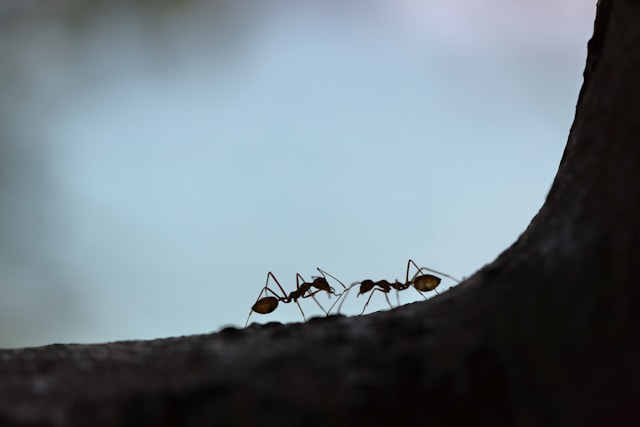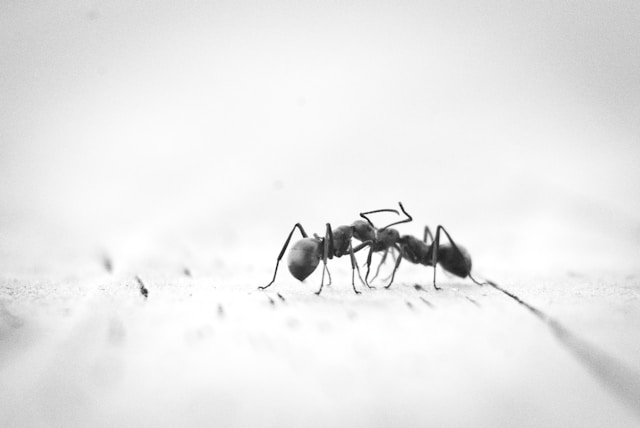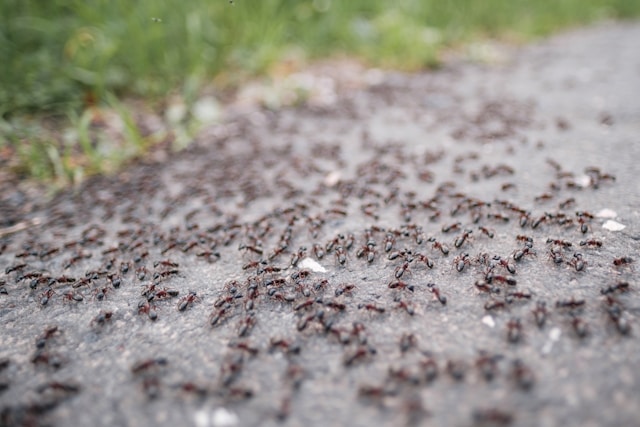Seasonal Ant Control Services: Why Timing Matters for Effective Control In Your Home
 Ants are among the most prevalent pests in homes, and although a few wandering ants might not appear dangerous, an infestation can spread rapidly and become a significant problem. If left unchecked, these highly structured little invaders can quickly build their colonies.
Ants are among the most prevalent pests in homes, and although a few wandering ants might not appear dangerous, an infestation can spread rapidly and become a significant problem. If left unchecked, these highly structured little invaders can quickly build their colonies.
Ant activity is very seasonal, with warmer months typically seeing more ant sightings as colonies emerge to seek food. Knowing when to apply pest control treatments is essential to managing ant infestations.
Pest control experts may drastically lower the possibility of an infestation by specifically targeting ants at particular seasons of the year. So here is a detailed guide on why timing matters!
Early Spring Intervention
When the colonies first become active in the early spring, it's usually the ideal time to begin ant management. Ant populations are now lower, and the queen has not given birth to many worker ants.
Professional ant control services can stop the colony from expanding to the point where it poses a significant threat by addressing it early on. Since ants are just beginning to forage for food and are more likely to carry bait back to the colony, treating at this time can also be more effective.
 Summer Maintenance
Summer Maintenance
Anthropogenic activity is highest in the summer. At this time of year, infestations are frequently at their worst, and ants are more likely to be seen in kitchens, bathrooms, and other areas of the house by homeowners. Even though the summer is a crucial season for ant control, it's usually preferable to think of this as a maintenance period rather than the beginning of control.
Colonies are now more firmly entrenched and extensive, making their eradication difficult. Regular maintenance treatments can help prevent infestations during the summer, but stopping the worst of them requires early intervention.
Fall Prevention
Ants will begin preparing for winter as soon as fall temperatures drop. They will store food and locate safe havens to keep their colonies warm. Another crucial period for ant control is here. Ants can be kept concealed until spring by treating them in the fall to deter them from moving into your house during the colder months.
Long-Term Ant Control Strategy
A year-round approach considering ant behavior's seasonality is crucial for long-term ant management. Numerous pest control businesses provide seasonal or quarterly programs targeting ants at certain times of the year. These programs help prevent ants from building colonies in or near your home by ensuring that treatments are administered when most effective.
 The Risks of Waiting
The Risks of Waiting
Ignoring an ant problem too long can have several detrimental effects. Ant colonies are difficult to manage once they get to a specific size because, among other things, they expand swiftly. Unchecked colonies have the potential to divide into several colonies, which can result in a more extensive infestation.
Furthermore, some ant species—like carpenter ants—can harm your house by tunneling into wooden buildings. An infestation
can cause more significant harm the longer it is allowed to continue, and the expense of repairs and treatments will increase accordingly.
Seasonal ant control services provide an organized and proactive strategy for controlling ant infestations. Homeowners may drastically lower the risk of a severe infestation by learning how ants act throughout the year and scheduling control measures to coincide with their most susceptible times.
A thorough ant control strategy includes fall prevention, summer maintenance, and early spring treatments. By hiring a pest control expert and using preventive measures, you can keep ants out of your house all year long and save yourself the trouble and money of dealing with a severe infestation.






